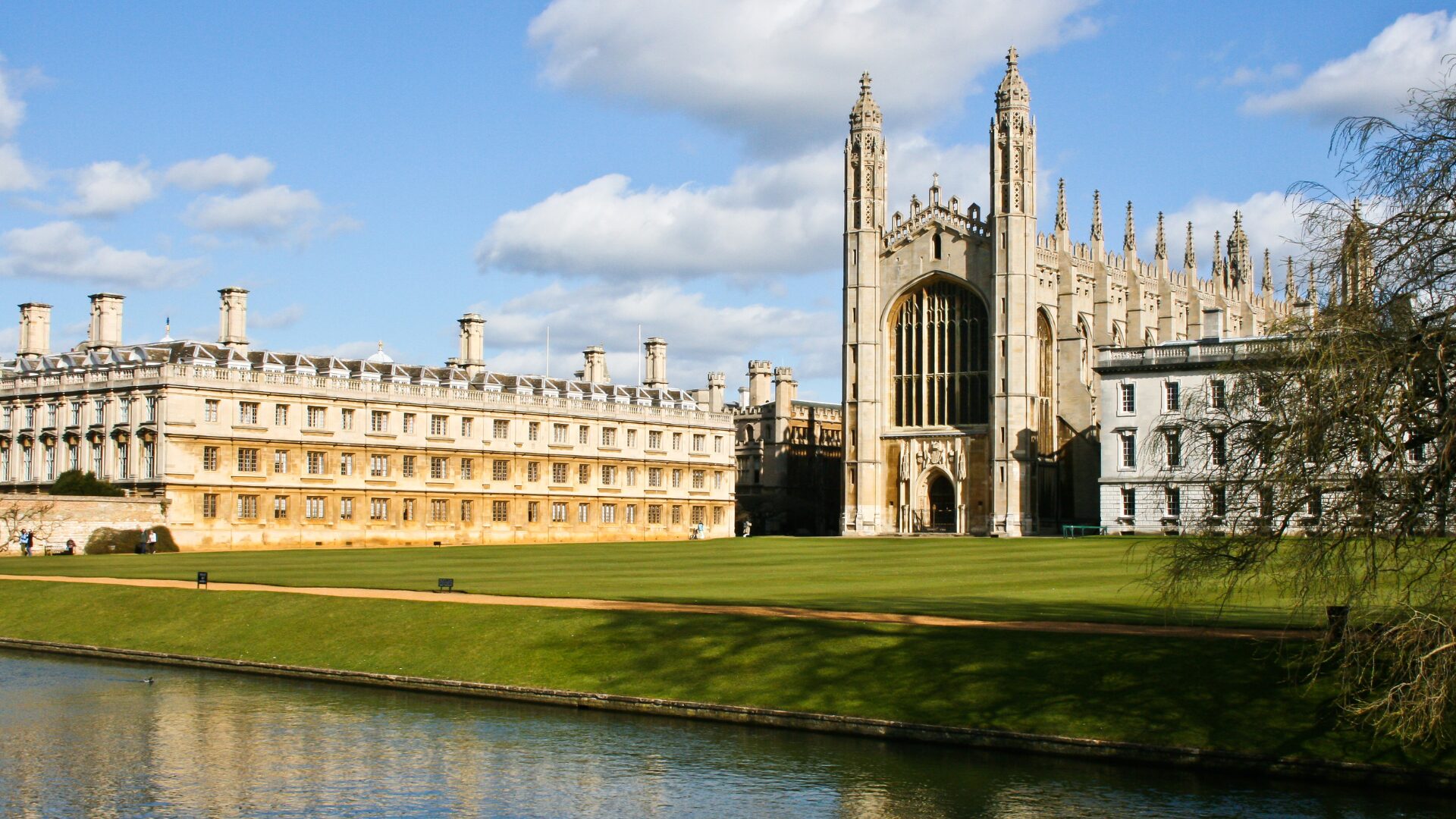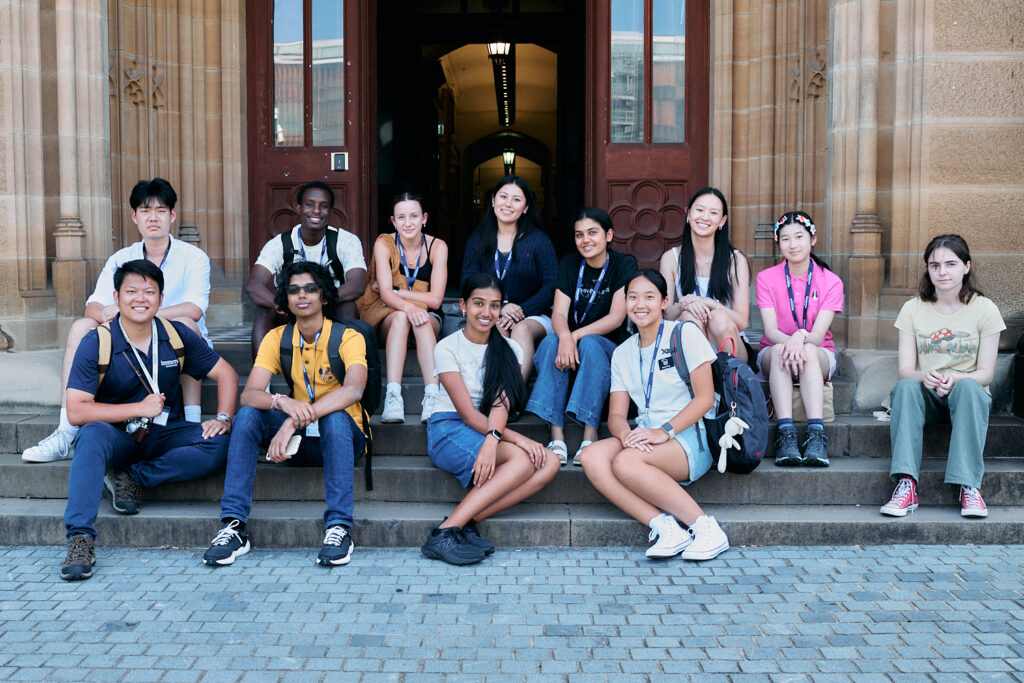If you’ve started researching higher education in the UK, you’ve likely wondered: what is a Russell Group university, and why does it matter? The term often appears in every student’s search for top universities, as Russell Group universities are widely linked to prestige, research excellence, and strong career outcomes.
These institutions are recognised worldwide for academic quality, influential research, and exceptional graduate prospects.
In this article, we will explain what a Russell Group university is, how the group was formed, and what makes its 24 members stand out across the United Kingdom.
We will also explore its history, meaning, and whether it truly matters for applicants.
What Is a Russell Group University?
The Russell Group is a network of 24 leading universities in the United Kingdom, renowned for research excellence, high-quality teaching, and global influence.
These universities collaborate to advance knowledge, attract world-class academics, and drive innovation across every field.
Importantly, the Russell Group is not an official ranking or government designation. Instead, it is a collective that represents shared academic interests, particularly around research funding, education policy, and partnerships with industry and government.
Its purpose is to strengthen the reputation and impact of UK higher education both nationally and internationally.
If you want to experience what learning at a Russell Group university feels like, consider joining our Oxford Summer School and Cambridge Summer School programmes. You’ll study in historic university settings, guided by expert tutors, and experience the academic rigour that defines world-leading education.
What Does ‘Russell Group’ Actually Mean?
The name originates from the Hotel Russell in London, where university leaders first met in 1994 to discuss common priorities.
Their goal was to create a unified voice for the UK’s top research-focused institutions, ensuring that their contributions to society and the economy were recognised and supported.
Since then, the group has grown in stature and influence. Its members consistently feature among the world’s top universities, with several including the University of Oxford, University of Cambridge, and Imperial College London regularly ranking in the global top ten.
What Do Russell Group Universities Have in Common?
Despite their individual strengths, all Russell Group universities share several defining qualities. They:
- Prioritise cutting-edge research that shapes public policy, technology, and innovation.
- Attract significant research funding and investment from government and global industries.
- Offer rigorous academic programmes led by world-class tutors.
- Maintain strong employer connections, leading to exceptional graduate outcomes.
- Foster diverse, international communities that enrich the student experience.
A Short History of the Russell Group
The Russell Group was founded in 1994 when a group of university leaders met at the Hotel Russell in London.
Their aim was to ensure that the UK’s top research universities had a unified voice when shaping national education and research policy.
Originally formed by 17 universities, the group expanded over time as more institutions reached similar standards of academic excellence.
Cardiff University and King’s College London joined in 1998, Queen’s University Belfast in 2006, and Durham, Exeter, Queen Mary University of London, and York in 2012, bringing the total to 24 members.
Since its formation, the Russell Group has become one of the most influential organisations in British higher education. It plays a key role in securing research funding, guiding policy discussions with the government, and maintaining the global reputation of UK universities.
This collective advocacy has helped strengthen the country’s position as a world leader in innovation, discovery, and higher learning.
The Russell Group Universities List
There are 24 universities in the Russell Group, each recognised for academic excellence, research impact, and international reputation.
To help you explore them easily, we’ve grouped them by region and highlighted what makes each area stand out.
England
England is home to most Russell Group universities. Many are historic, globally ranked, and central to the UK’s research output.
- University of Oxford – The UK’s oldest university and a world leader in humanities, sciences, and medicine.
- University of Cambridge – Known for rigorous academics, small-group teaching, and global research excellence.
- Imperial College London – Specialises in science, technology, engineering, and medicine, driving innovation worldwide.
- London School of Economics and Political Science (LSE) – Focuses on social sciences, economics, and politics with strong global influence.
- University College London (UCL) – A multidisciplinary university known for medicine, architecture, and social sciences.
- King’s College London – Renowned for law, health sciences, and global research partnerships.
- University of Manchester – The UK’s largest single-site university, leading in science, engineering, and social responsibility.
- University of Birmingham – Recognised for engineering, medical, and business education with strong industry ties.
- University of Bristol – Combines academic excellence with sustainability leadership and global outreach.
- University of Nottingham – Known for international campuses and environmental research.
- University of Leeds – A research powerhouse in business, engineering, and climate studies.
- University of Sheffield – Excels in materials science, engineering, and social research.
- University of Southampton – A pioneer in oceanography, computer science, and engineering innovation.
- University of Warwick – Respected for business, mathematics, and physical sciences with strong employability outcomes.
- Durham University – Offers a collegiate environment and top-ranked humanities and sciences.
- University of Exeter – A leader in sustainability and environmental research.
- University of Liverpool – Known for life sciences, veterinary medicine, and international research collaborations.
- University of York – Recognised for archaeology, social sciences, and environmental research.
- Newcastle University – Strong in medicine, engineering, and architecture with a focus on community impact.
- Queen Mary University of London – Excels in medicine, law, and social justice research.
Scotland
Scotland’s Russell Group universities blend centuries of tradition with cutting-edge research.
- University of Edinburgh – Globally ranked for medical, computing, and social research.
- University of Glasgow – Known for life sciences, engineering, and one of the UK’s most diverse academic communities.
Wales
- Cardiff University – Wales’s only Russell Group member, leading in journalism, engineering, and biomedical research.
Northern Ireland
- Queen’s University Belfast – The only Russell Group university in Northern Ireland, known for health, data, and engineering innovation.
Join the Immerse Education 2025 Essay Competition
Follow the instructions to write and submit your best essay for a chance to be awarded a 100% scholarship.

What Makes a University Part of the Russell Group
Being part of the Russell Group universities network signals that a university is research-driven, globally connected, and committed to academic excellence.
Membership is not based on ranking but on shared values that define the UK’s most influential universities.
Here’s what sets them apart:
- Research leadership: Russell Group universities lead national and international research that drives progress in science, medicine, technology, and social policy. The University of Oxford, for instance, works with global health partners on vaccine development, while Imperial College London leads innovation in engineering and climate science.
- Access to funding and resources: These institutions receive a significant share of the UK’s research funding, enabling world-class facilities, advanced laboratories, and pioneering academic projects. Their financial strength supports both groundbreaking research and high-quality teaching.
- Strong employer connections: Russell Group universities collaborate closely with major employers, from engineering firms to global NGOs. This ensures students gain practical experience, networking opportunities, and enhanced career prospects.
- Outstanding graduate outcomes: Employers value the skills, independence, and analytical thinking developed at these universities. Graduates often secure top roles in business, science, government, and the arts, reflecting the real-world value of a Russell Group education.
In short, membership in the Russell Group represents more than prestige. It reflects consistent excellence in research, teaching, and graduate success that continues to shape the United Kingdom’s global reputation for higher education.
Is the Russell Group the Same as the Ivy League
No, the Russell Group is not the same as the Ivy League. While both are known for academic prestige, global reputation, and competitive admissions, they exist for different reasons.
How they’re similar:
- Both are associated with academic excellence, selective admissions, and strong global reputations.
- Graduates from both groups are highly employable and often move into leadership roles across sectors such as business, research, and public service.
- Both attract international students seeking top-quality education and world-class teaching environments.
How they differ:
- The Ivy League is an athletic conference in the United States that includes eight universities such as Harvard, Yale, and Princeton. Its identity originated from sports competition, not academics.
- The Russell Group, in contrast, is an academic association of 24 research-focused universities across the United Kingdom. It was formed to represent shared interests in education and research funding, not athletics.
In short, while the Ivy League is rooted in tradition and sport, the Russell Group exists to advance research and academic collaboration.
Both are symbols of excellence, but they operate in entirely different contexts and serve distinct purposes within higher education.
Is It Better to Go to a Russell Group University
Many students wonder if studying at a Russell Group university guarantees a better education or career. The truth is more balanced.
While these universities offer world-class opportunities, they are not the only path to success.
The Pros of Attending a Russell Group University
- Academic excellence: Russell Group universities are globally recognised for rigorous teaching and groundbreaking research. Students learn from experts who are leaders in their fields.
- Prestige and reputation: A degree from institutions like Oxford, Cambridge, or Imperial College London can carry weight with employers worldwide.
- Access to networks: These universities attract ambitious students, global academics, and leading employers, creating valuable professional connections.
- Research facilities: State-of-the-art resources allow students to engage in cutting-edge projects and develop strong analytical and problem-solving skills.
The Cons and Misconceptions
- Competitive environment: High expectations and intense workloads can feel challenging, especially in popular courses like medicine, law, and engineering.
- Not always the best for every subject: Some non-Russell Group universities outperform in specific fields such as art, design, and media.
- Prestige is not everything: Employers value skills, experience, and attitude as much as the university name on a degree.
How to Get Into a Russell Group University
Earning a place at a Russell Group university takes more than good grades. Admissions teams look for academic strength, intellectual curiosity, and clear motivation for your chosen subject.
Here’s what matters most:
1. Entry Requirements
Most Russell Group universities set high entry standards.
- Grades: A or A* at A level (or equivalent) is common for competitive courses.
- Subjects: Some programmes require specific subjects, such as mathematics for engineering or chemistry for medicine.
- Qualifications: International students can apply with the IB, Scottish Highers, or recognised global equivalents.
Tip: Always check the university’s official course page for entry details. Requirements vary between subjects and institutions.
2. Strong Applications
A standout application shows enthusiasm and evidence of academic engagement.
- Personal statement: Focus on why you love the subject and how you’ve explored it beyond the classroom.
- Evidence of curiosity: Mention reading, research projects, competitions, or relevant work experience.
- Academic programmes: Participation in pre-university experiences or summer schools can demonstrate readiness for advanced study.
Keep your writing clear and authentic. Admissions tutors value honesty and reflection over exaggeration.
3. Interviews and Admissions Tests
Some Russell Group universities, particularly Oxford and Cambridge, use interviews and additional tests to assess potential.
- Interviews: Expect discussions that test how you think, solve problems, and apply knowledge creatively.
- Admissions tests: Depending on your subject, you may need to take exams like the UCAT (medicine), LNAT (law), or TMUA (mathematics).
- Preparation: Practise past papers, stay informed on current developments in your field, and approach each question with calm logic.
Getting into a Russell Group university requires consistent effort, curiosity, and focus. Strong grades matter, but so does showing that you’re genuinely ready to learn, contribute, and grow within a world-class academic environment.
Life at a Russell Group University
Life at a Russell Group university combines academic challenge, independence, and opportunity.
These universities attract students from across the UK and around the world, creating diverse, energetic campuses where ideas thrive.
Learning is research-led, meaning your studies are influenced by real discoveries and current global issues.
Tutorials, workshops, and projects are designed to help you think critically and apply knowledge to real problems.
The Student Experience
Daily life balances intense academic study with a rich social scene.
You’ll engage in lectures from leading academics and small-group discussions that push you to think independently.
Support is always available through academic advisors, wellbeing services, and peer mentoring. Beyond the classroom, there’s a strong sense of community.
Russell Group universities host hundreds of societies, clubs, and volunteering programmes.
Whether you join a debating team, environmental group, or orchestra, you’ll find a network that helps you grow personally and professionally.
Many campuses sit within vibrant cities like London, Manchester, and Edinburgh, offering culture, nightlife, and endless experiences.
If you want to experience this style of teaching before university, explore our Oxford Summer School programmes, where you can study subjects like law, medicine, and international relations in a university setting.
Career Support and Opportunities
Russell Group universities are deeply connected with global employers. Career centres run regular skills workshops, networking sessions, and internship placements to prepare students for competitive job markets.
- Work placements and internships: Many degrees integrate practical experience with leading organisations.
- Career fairs and mentoring: Events connect students directly with recruiters and alumni in sectors like finance, law, healthcare, and technology.
- Research and enterprise: Students can collaborate with academics on real-world projects or start their own ventures through innovation hubs.
Graduating from a Russell Group university means joining a powerful global network. Students leave not just with a degree but with professional skills, real experience, and the confidence to succeed anywhere in the world.
Criticisms and Myths About the Russell Group
The Russell Group is widely regarded as a symbol of academic excellence and global impact.
However, it’s important to recognise that many universities outside the group also achieve outstanding results in teaching quality, student satisfaction, and graduate success.
Each institution contributes uniquely to the strength and diversity of UK higher education.
Myth 1: Only Russell Group Degrees Impress Employers
This is one of the biggest misconceptions. Employers care more about skills, experience, and attitude than the university name on your degree.
- Universities such as Bath, Loughborough, and Lancaster rank among the best in the UK for employability.
- Specialist universities, including St Andrews and Sussex, are also highly respected in fields like international relations, creative arts, and environmental science.
- Many companies recruit from a broad range of universities, focusing on applicants who can demonstrate initiative, communication, and leadership.
In short, your employability depends on what you do at university, not just where you study.
If you want to start building those skills early, our Cambridge Summer School offers opportunities to practise teamwork, research, and academic writing, skills that employers and universities value highly.
Myth 2: The Russell Group Guarantees Better Teaching
Russell Group universities are recognised for research excellence, but that does not always mean better teaching.
- Some smaller universities focus more on teaching quality and personalised support.
- National Student Survey results often show higher satisfaction rates at non-Russell Group institutions such as St Andrews, Surrey, and East Anglia.
- Research-led teaching can sometimes prioritise academics’ projects over classroom engagement.
In short, great teaching exists across the UK. When choosing where to study, look at course content, tutor support, and learning style, not just the university’s name.
Should You Aim for a Russell Group University?
Choosing whether to apply to a Russell Group university depends on your goals, study style, and subject interests. Prestige alone should not guide your decision.
The right university is the one that helps you grow, supports your ambitions, and offers the best environment for your learning.
When It Makes Sense to Aim for the Russell Group
- You are passionate about research-led learning and want to study under leading academics.
- Your subject benefits from the specialist facilities and industry partnerships these universities often provide.
- You value global recognition and strong alumni networks that can open international career opportunities.
- You are ready for a fast-paced, competitive academic environment with high expectations.
If you thrive on challenge and want to engage with global research and innovation, a Russell Group university could be the right fit.
When Other Universities Might Be a Better Fit
- You prefer smaller class sizes and closer interaction with tutors – although of course, you can also find this in Oxford and Cambridge supervisions!
- Your chosen course is stronger or more specialised at a non-Russell Group university.
- You value a campus known for teaching excellence or high student satisfaction.
- You are looking for a particular location, learning style, or community atmosphere.
In the end, success is not defined by where you study but by how you use your time there.
Focus on finding a university that inspires you, challenges you, and prepares you for the future you want.
Conclusion
The Russell Group represents excellence, innovation, and opportunity within UK higher education. Its universities lead in research, academic achievement, and global recognition.
Yet, understanding what a Russell Group university is is only part of the bigger picture.
It’s one of many strong routes to success, and every participant’s path is unique. Many other universities across the UK also deliver outstanding teaching, rich learning environments, and excellent career outcomes.
When choosing where to study, think beyond prestige. Focus on finding a university that inspires you, supports your ambitions, and helps you grow into the person you want to become.
If you’d like to experience a Russell Group University life first-hand, explore our Oxford Summer School and Cambridge Summer School, where you can join subject-specific programmes from medicine to Creative Writing, designed to help you develop confidence, curiosity, and clarity about your academic goals.
Find out more about preparing for university and discovering your ideal course with Immerse Education.




















